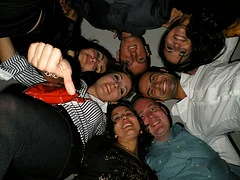
Why Empathy Belongs on Your Conference Stage
Because people aren’t machines—and most audiences are starved for something real.
In the sea of leadership jargon, pie charts, and LinkedIn-worthy sound bites, empathy might seem soft. But don’t mistake it for weak. In fact, empathy might be the most disruptive thing you can put on a conference stage today.
Because most people aren’t lacking information.
They’re lacking connection.
Human- Centered Leadership Speaker Topics
Let’s start with the obvious: people are not machines. They’re not here to be optimized, restructured, or “incentivized” into compliance. And yet, most conferences treat audiences like data points—input ideas, expect output behavior. But that’s not how humans work.
The Real Problem: We Have Fewer Human Moments Than Ever
Between nonstop meetings, endless notifications, and surface-level social interactions, authentic human connection is in short supply. A recent study from Cigna found that 61% of adults report being lonely, and workplaces are no exception. (Cigna, 2020).
We’re checking off tasks, hitting KPIs, and showing up to work—but we’re not really showing up to each other.
This disconnection costs us more than morale. Empathy deficits impact everything from collaboration and innovation to retention and mental health. The Center for Creative Leadership found that leaders who show empathy toward employees are viewed as better performers by their bosses. (CCL Research)
So why are we still trotting out slide decks and “best practices” like they’ll solve the burnout epidemic?
Why Empathy is a Conference Power Tool
Empathy belongs on your conference stage because it gives people what they actually need:
- To feel seen — not just surveyed
- To feel understood — not just trained
- To feel connected — not just inspired
A keynote built around empathy doesn’t just deliver content; it creates context. It says: “You’re not the only one feeling like this.” And in doing so, it opens the door to change—not through fear or pressure, but through shared humanity.
Neuroscience Has Our Back on This One
Empathy isn’t fluff—it’s brain science. When a speaker tells a story that evokes empathy, it activates the brain’s mirror neurons, creating a sense of shared experience between speaker and audience. According to neuroscience researcher Dr. Tania Singer, empathy activates the insula and anterior cingulate cortex—areas critical to emotional and social processing. (Nature Reviews Neuroscience, 2009)
Translation? A great empathetic keynote literally syncs brains. That’s not just engagement. That’s transformation.
Empathy Speeches Don’t Coddle—They Connect
Let’s be clear: empathy isn’t about sugarcoating. It’s about showing up with honesty and care. It’s saying the hard thing—but in a way that invites people in instead of shutting them down.
When a keynote speaker brings empathy to the stage, they:
- Model emotional intelligence
- Disarm defensiveness
- Create psychological safety in the room
- Foster belonging and trust (the precursors to performance)
Empathy isn’t the opposite of action—it’s the fuel for it.
The Speaker You Hire Should Speak To Your People, Not At Them
If you’re planning a conference right now, here’s a challenge:
Don’t just book someone who dazzles. Book someone who connects.
Look for keynote speakers who:
- Speak without slides so they can interact, not perform
- Use humor to bring walls down
- Tell real, vulnerable stories
- Pause to let the room breathe and respond
- Speak with your audience, not at them
At a time when many employees feel invisible, the keynote should make them feel seen.
Empathy Isn’t a Theme—It’s a Strategy
In the post-pandemic workplace, culture isn’t built in strategy meetings. It’s built in moments of human connection. That starts on your conference stage.
A good keynote fills notebooks.
A great keynote fills hearts—and gives people the courage to lead differently when they go back to their teams.
If we want deeper teams, better cultures, and braver leaders, empathy is not optional. It’s essential.
Because at the end of the day, the best thing you can give your audience isn’t more to-do’s.
It’s the reminder that they’re not alone.
👋 I’m Jody Urquhart, a keynote speaker who helps leaders replace hustle culture with human connection. I don’t use PowerPoint—because I’d rather talk with people than at them.
Learn more at www.idoinspire.com
#HumanCenteredLeadership #LeadershipWithHeart #FemaleKeynoteSpeaker #CanadianMotivationalSpeaker #WorkplaceConnection